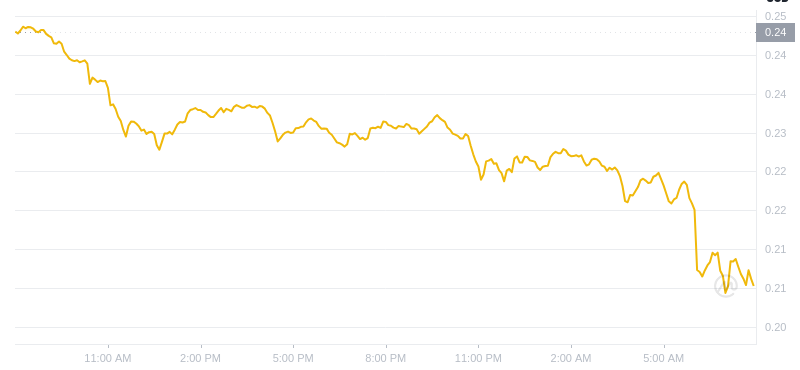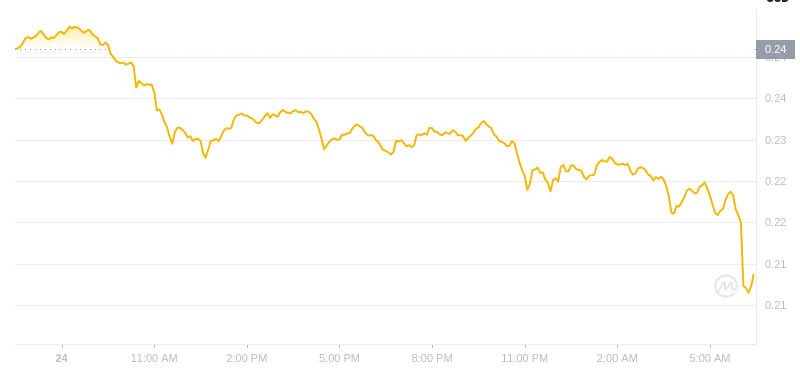
Common Types of Traders Who Consistently Face Losses
持續面臨損失的常見交易者類型
Traders often face consistent losses due to various factors, including poor trading strategies, emotional decision-making, and a lack of discipline. Here are some common types of traders who may encounter these challenges:
由於各種因素,交易者經常面臨持續的損失,包括糟糕的交易策略、情緒化的決策和缺乏紀律。以下是可能遇到這些挑戰的一些常見交易者類型:
Emotional Traders:
These traders base their decisions on emotions such as fear, greed, or impulse rather than rational analysis. They may panic during market downturns or chase fast-paced assets without proper planning, resulting in unfavorable trades.
情緒化交易者:這些交易者的決策是基於恐懼、貪婪或衝動等情緒,而不是理性分析。他們可能會在市場低迷時期感到恐慌,或者在沒有適當規劃的情況下追逐快節奏的資產,從而導致不利的交易。
Overtraders:
Overtraders execute excessive trades in a short period, believing they can capitalize on every market fluctuation. They often overlook transaction costs and fees, and may not allow sufficient time for their positions to develop, leading to suboptimal performance.
過度交易者:過度交易者在短時間內執行過多的交易,相信他們可以從每次市場波動中獲利。他們經常忽略交易成本和費用,並且可能沒有足夠的時間來發展自己的頭寸,從而導致業績不佳。
Impatient Traders:
Impatience drives these traders to seek rapid profits, causing them to exit trades prematurely or enter into high-risk positions. They lack a long-term perspective and incur losses due to impulsive decisions.
不耐煩的交易者:不耐煩驅使這些交易者尋求快速利潤,導致他們過早退出交易或進入高風險部位。他們缺乏長遠的眼光,因衝動的決定而蒙受損失。
Revenge Traders:
After experiencing a losing trade, revenge traders attempt to recover their losses immediately by placing larger, riskier bets. This strategy often leads to even greater losses, as decisions are influenced by emotions.
報復性交易者:在經歷了一筆虧損的交易後,報復性交易者試圖透過下更大、風險更高的賭注來立即挽回損失。這種策略往往會導致更大的損失,因為決策會受到情緒的影響。
Ill-Informed Traders:
Traders who lack sufficient knowledge of the markets they trade in often make poor decisions. They may follow rumors or jump into trending markets without fully understanding the underlying risks.
消息不靈通的交易者:缺乏對交易市場足夠了解的交易者常常會做出錯誤的決定。他們可能會在沒有充分了解潛在風險的情況下跟隨謠言或跳入趨勢市場。
Overconfident Traders:
Overconfidence can lead traders to assume excessive risks, particularly after experiencing a few profitable trades. They may neglect risk management and place significant bets, assuming continued success, but a single unsuccessful trade can eliminate their gains.
過度自信的交易者:過度自信會導致交易者承擔過多的風險,尤其是在經歷了幾次獲利交易之後。他們可能會忽視風險管理,並在假設持續成功的情況下進行重大押注,但一次不成功的交易可能會消除他們的收益。
Traders Without a Plan:
Traders who enter the market without a well-defined trading plan often make impulsive decisions. Without a clear strategy for entry, exit, and risk management, these traders expose themselves to significant losses.
沒有計劃的交易者:在沒有明確交易計劃的情況下進入市場的交易者經常會做出衝動的決定。如果沒有明確的進場、出場和風險管理策略,這些交易者就會面臨重大損失。
Undisciplined Traders:
Even with a sound trading strategy, traders can face losses if they fail to adhere to it consistently. A lack of discipline, such as neglecting to adhere to stop-loss limits or prematurely realizing profits, can erode earnings.
不守紀律的交易者:即使擁有健全的交易策略,如果交易者未能始終如一地堅持下去,也可能面臨損失。缺乏紀律,例如忽視遵守停損限額或過早實現利潤,可能會侵蝕收益。
Leverage-Dependent Traders:
Employing excessive leverage can amplify both gains and losses. Traders who rely heavily on leverage risk substantial losses when the market moves against them, as even minor price fluctuations can terminate their positions.
依賴槓桿的交易者:使用過高的槓桿會放大收益和損失。當市場走勢對他們不利時,嚴重依賴槓桿的交易者可能會面臨重大損失,因為即使是微小的價格波動也可能終止他們的部位。
News-Driven Traders:
Solely relying on news or headlines for trading decisions, without a deeper understanding of market fundamentals or technical analysis, can result in poor timing. By the time news becomes available, the market may have already incorporated that information into its pricing.
新聞驅動的交易者:僅依靠新聞或頭條新聞來做出交易決策,而不對市場基本面或技術分析有更深入的了解,可能會導致時機不佳。當新聞發佈時,市場可能已經將該資訊納入其定價中。


 TheNewsCrypto
TheNewsCrypto Times Tabloid
Times Tabloid DogeHome
DogeHome CFN
CFN Crypto Daily™
Crypto Daily™ DogeHome
DogeHome Crypto Daily™
Crypto Daily™ TheCoinrise Media
TheCoinrise Media Crypto Daily™
Crypto Daily™






















